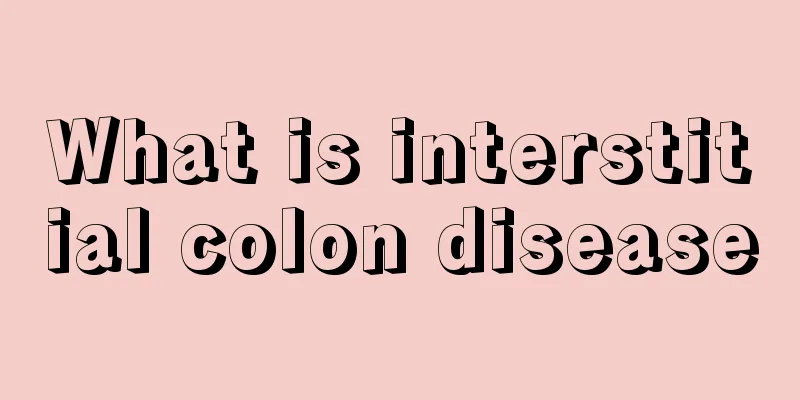What is interstitial colon disease

|
Interposition colon is a very common disease, but many people may not have heard of it. In fact, interposition colon is generally a congenital disease. Under normal circumstances, the colon of a normal person is located below the liver, but interposition colon generally refers to the colon being located above the liver. However, most people with interposition colon generally do not feel any discomfort in their bodies, and this situation generally does not require special treatment. Interstitial colon refers to the colon (mostly the hepatic flexure) entering the space between the liver and the diaphragm from the pre-hepatic space or post-hepatic space. It may be asymptomatic or may cause dull pain in the right hypochondrium, abdominal distension, and even gastrointestinal obstruction. The symptoms caused by this are called interstitial colon syndrome, also known as Chilaiditi syndrome. Interpositional colon syndrome is also called Chilaiditi syndrome. In this disease, the right colon flexure is embedded between the liver and the diaphragm. The cause is not the intestine itself, but the drooping and abnormal position of the liver is the basis of this disease. This disease is often caused by developmental abnormalities such as the liver's ligaments being too long, weak, or absent, which causes the liver to move downward and the gap between the liver and the diaphragm to widen, resulting in the colon being embedded in the space. Congenital weakness of the diaphragm or diaphragm paralysis is the triggering factor of this disease. In addition, this symptom can also be seen in some patients with cirrhosis due to obvious atrophy of the right liver lobe and enlarged hepatic diaphragm space. Clinical manifestations: This disease can be seen in both men and women. It is usually asymptomatic. Some symptoms may include upper abdominal discomfort and mild abdominal distension, which is more obvious in the right upper abdomen and worsens after meals. Clinically, it is often misdiagnosed as cholecystitis or gastritis. When the embedded colon is obstructed, you often feel sudden and unbearable upper abdominal distension and pain, a feeling of shortness of breath, and radiating pain in the back. The symptoms disappear after a few hours to a few days, and most of the time they disappear suddenly after activity. The diagnosis of this disease is mainly based on X-ray and CT, and now ultrasound is also used. Due to the influence of some gases, ultrasonic examination also has its limitations! Treatment editor: For some patients with severe symptoms that are progressive and continuously worsen, especially in childhood, when symptoms are severe and affect appetite and hinder growth and development, radical surgical treatment may be considered. Fixing the liver and colon has a better prognosis. Mild cases do not require treatment. Most of the symptoms can be relieved on their own by resting in bed and avoiding gas production in the esophagus. The Chinese medicine Bu Zhong Yi Qi Tang can also be used for treatment. |
>>: How to maintain the tattoo after washing
Recommend
Do you need to apply primer before applying sunscreen? Here’s how to use it correctly
If women want their skin to be whiter, they shoul...
Causes of Arthritis
There are many different symptoms of arthritis, w...
What are the common diets and methods for gaining weight?
Some people are too thin, which is not good for h...
How long can you live with testicular cancer
How long can a patient with testicular cancer liv...
Is 37 degrees under the armpit considered a fever?
When we find that our body temperature is higher ...
Best time to take seven types of medicines
More and more medical experts emphasize that the ...
I felt cold and had a headache after coming back from the gastroscopy
In life, there are many patients with stomach pro...
What are the five items of hepatitis B test?
Whether it is a physical examination or some abno...
Vitamin K for vascular dark circles
Dark circles have different classifications accor...
It's not my period but I have a small amount of bleeding
A woman's normal menstrual period is regular ...
Does wild rice stem need to be peeled?
I don't know if you have ever eaten wild rice...
What causes pulmonary edema?
Many people have heard of tuberculosis, but few p...
How many tonsils are there
Although we often hear about tonsillitis in our d...
Who are the suitable people for American ginseng
American ginseng is a traditional Chinese medicin...
There is a foreign body sensation in the mouth
Oral hygiene is something we need to deal with ev...









